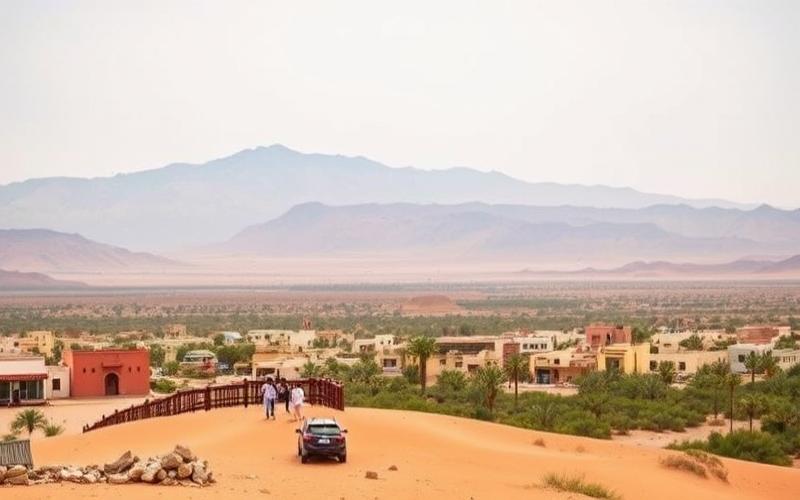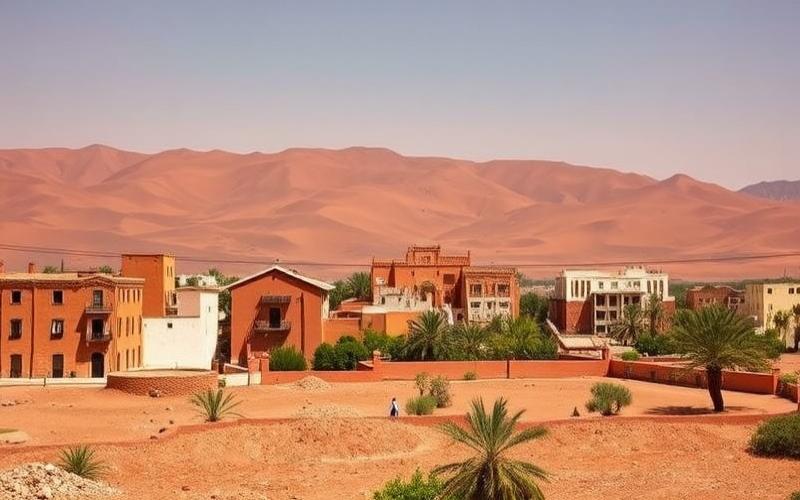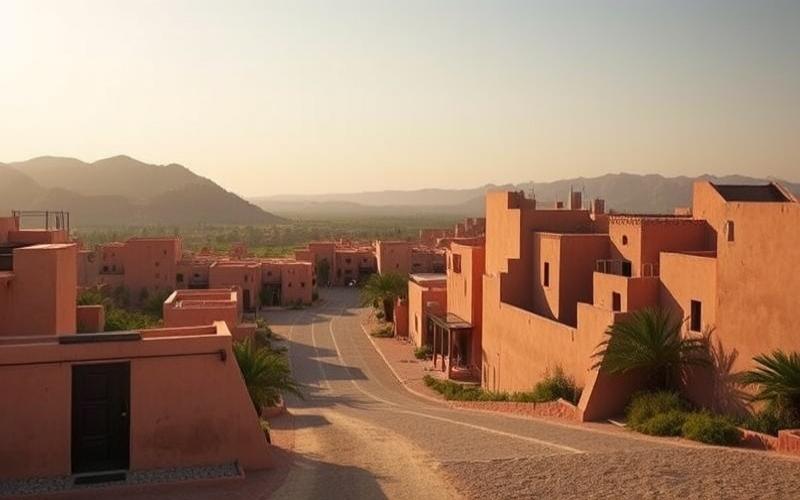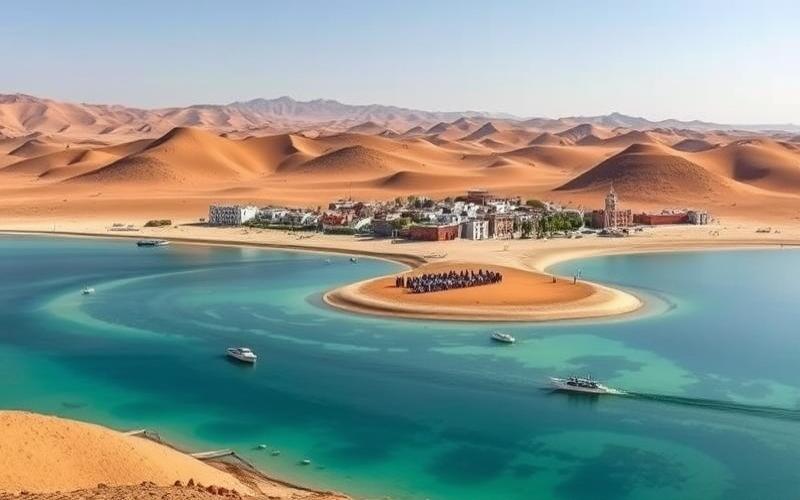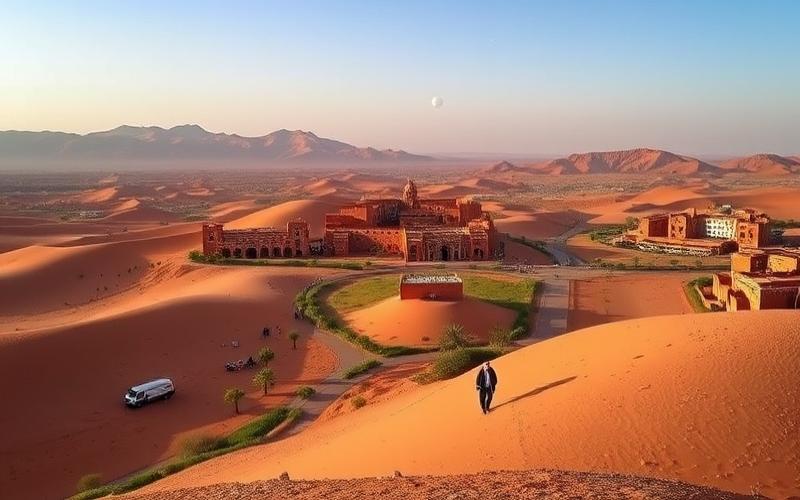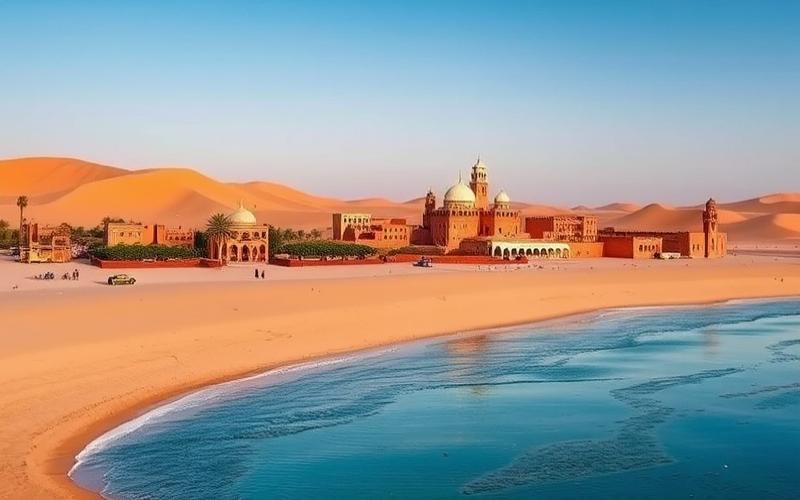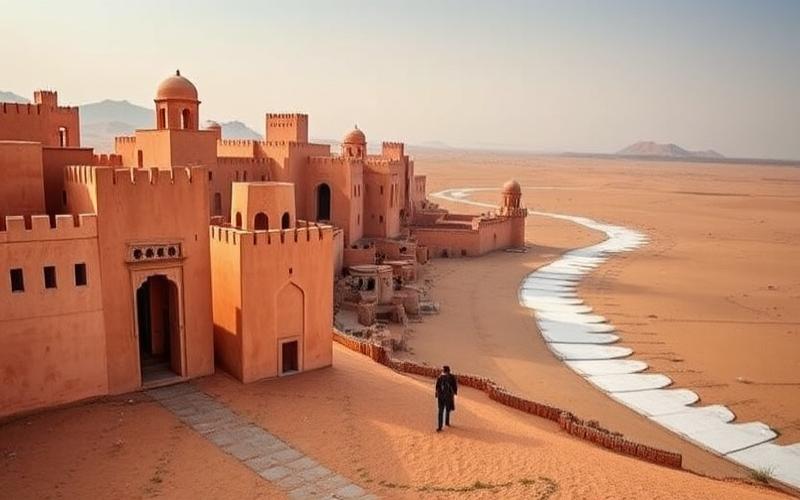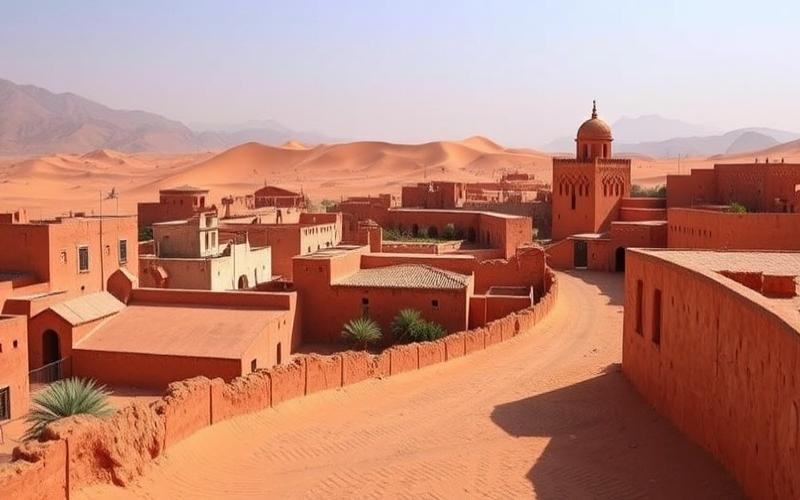
 Published on and written by Cyril Jarnias
Published on and written by Cyril Jarnias
E-commerce in Morocco is experiencing explosive growth, radically transforming the country’s commercial landscape. In 2025, the sector is reaching new heights, driven by evolving consumer behaviors, technological innovations, and improved logistics infrastructure. This article explores the major trends shaping the future of online commerce in Morocco.
The Online Shopping Revolution: New Behaviors of Moroccan Consumers
The Moroccan consumer in 2025 is more connected and demanding than ever. The widespread adoption of smartphones and improved internet coverage have democratized online shopping, creating new consumption habits.
Increased Trust in Local Platforms
Moroccan consumers’ trust in local e-commerce platforms has significantly increased. A recent survey shows that 62% of consumers report being more confident in local e-commerce sites, an 8% increase from the previous year. This evolution is attributed to several factors:
– Improved return policies – Enhanced transaction security – Better protection of personal data
The Rise of M-commerce
In 2025, mobile commerce dominates the Moroccan e-commerce landscape. A full 70% of online transactions are now conducted via smartphones. This trend forces businesses to optimize their sites to offer a smooth, fast, and secure mobile experience.
More Informed and Demanding Consumers
Moroccan consumers have become true experts in price comparison and review research. They don’t hesitate to consult multiple sources before finalizing a purchase. This trend pushes e-merchants to be more transparent about their prices and to carefully manage their online reputation.
Good to Know:
Generation Z is particularly receptive to new technologies, with more than half of its members making purchases via social platforms integrating AI.
Innovation at the Heart of Customer Experience: Revolutionary Technologies
The year 2025 marks a technological turning point for Moroccan e-commerce. Innovations are multiplying, offering increasingly immersive and personalized shopping experiences.
Generative AI Serving Shopping
Generative artificial intelligence is profoundly transforming the customer experience. According to a recent study, 68% of Moroccan consumers report being willing to follow recommendations from generative AI tools for their purchases. These technologies enable:
– Advanced personalization of product recommendations – Virtual assistants capable of answering complex customer questions – Generation of product content tailored to each user’s preferences
Augmented Reality to Try Before Buying
Augmented reality (AR) technologies are becoming mainstream in Moroccan e-commerce. They allow consumers to visualize products in their real environment before purchase. This innovation is particularly appreciated in the fashion, decoration, and furniture sectors.
Innovative Payments
Online payment is diversifying and simplifying. Mobile payment solutions and cryptocurrencies are gaining ground, offering more flexibility to Moroccan consumers. Installment payments are also experiencing significant growth, allowing customers to spread their purchases over time.
Good to Know:
The adoption of generative AI varies by consumer profile. Companies must adapt their strategies according to these different segments to maximize their impact.
The Race for Efficiency: Logistics Revolution and Express Delivery
Logistics and delivery have become crucial challenges for Moroccan e-merchants in 2025. Faced with consumers increasingly demanding speed and reliability, the sector is undergoing a true revolution.
The Advent of Ultra-Fast Delivery
Delivery times are drastically reducing. Market leaders now offer deliveries in under 2 hours in major Moroccan cities. This performance is made possible thanks to:
– Optimization of urban warehouses – Use of artificial intelligence to predict demand and optimize inventory – Development of electric delivery fleets for better agility in urban environments
Green Logistics on the Rise
The ecological awareness of Moroccan consumers is pushing e-merchants to adopt more sustainable logistics practices:
– Use of electric vehicles for last-mile deliveries – Packaging optimization to reduce waste – Implementation of collection points to facilitate packaging recycling
Warehouse Automation
Major Moroccan e-commerce players are heavily investing in automating their logistics centers. Robots and intelligent sorting systems accelerate order preparation and reduce errors.
Good to Know:
Some innovative companies now offer 90-minute deliveries via a 100% electric fleet, a first in the Moroccan market.
Digital Marketing 2.0: Innovative Strategies to Capture Attention
In an increasingly competitive market, digital marketing strategies are rapidly evolving to adapt to the new behaviors of Moroccan consumers.
The Influence of Social Commerce
Social networks play a key role in Moroccan consumers’ purchasing decisions. In 2025, approximately 35% of online purchases are influenced by social platforms such as Instagram, Facebook, and TikTok. Companies are betting on:
– Live shopping to create immersive shopping experiences – Collaborations with local influencers to gain credibility – Integration of purchasing features directly into social applications
Personalized Content is King
Marketing content personalization is reaching new heights thanks to artificial intelligence. Moroccan e-merchants use advanced algorithms to:
– Create ultra-targeted newsletters – Adapt website content in real-time according to user profiles – Generate relevant product recommendations based on browsing and purchase history
Conversational Marketing Booming
Chatbots and virtual assistants are becoming essential in the marketing strategy of Moroccan e-merchants. They enable:
– 24/7 availability to answer customer questions – Advanced personalization of interactions – Collection of valuable data on consumer preferences
Good to Know:
Advertising campaigns on social networks, particularly Facebook and Instagram, are especially effective for targeting specific audiences based on their interests and location.
Future Outlook: An Expanding Market
Forecasts for the Moroccan e-commerce market in 2025 and beyond are extremely promising. Several factors contribute to this sustained growth:
Exponential Growth
The e-commerce sector in Morocco is expected to experience an average annual growth of 20% until 2027. This progression is driven by:
– Increased internet penetration rate – Democratization of smartphones – Improvement of logistics infrastructure
Sector Diversification
While fashion and electronics remain flagship sectors, new categories are rapidly emerging:
– Food and fresh products are experiencing strong growth – Online services (ticketing, reservations) are developing rapidly – The online luxury goods market is gradually opening up
Challenges to Overcome
Despite these positive prospects, the sector must face several challenges:
– Increased competition from international e-commerce giants – The need to constantly improve customer experience to retain consumers – Cybersecurity issues and personal data protection
Good to Know:
E-commerce is becoming a growth engine for both large companies and Moroccan SMEs. The outlook for 2025 and beyond is particularly optimistic, supported by a young and connected population.
Conclusion: A Promising Future for Moroccan E-commerce
E-commerce in Morocco in 2025 is characterized by dynamic growth, driven by technological innovation, evolving consumer behaviors, and improved infrastructure. Companies that can adapt to these new trends, offering personalized, smooth, and secure shopping experiences, will be best positioned to benefit from this expanding market.
To remain competitive, Moroccan companies must:
– Invest in AI and augmented reality technologies – Optimize their mobile presence and omnichannel strategy – Constantly improve their logistics and delivery times – Adopt sustainable practices to meet the expectations of eco-conscious consumers
The future of e-commerce in Morocco looks bright, offering numerous opportunities to innovative entrepreneurs and established brands that know how to reinvent themselves.
Disclaimer: The information provided on this website is for informational purposes only and does not constitute financial, legal, or professional advice. We encourage you to consult qualified experts before making any investment, real estate, or expatriation decisions. Although we strive to maintain up-to-date and accurate information, we do not guarantee the completeness, accuracy, or timeliness of the proposed content. As investment and expatriation involve risks, we disclaim any liability for potential losses or damages arising from the use of this site. Your use of this site confirms your acceptance of these terms and your understanding of the associated risks.




